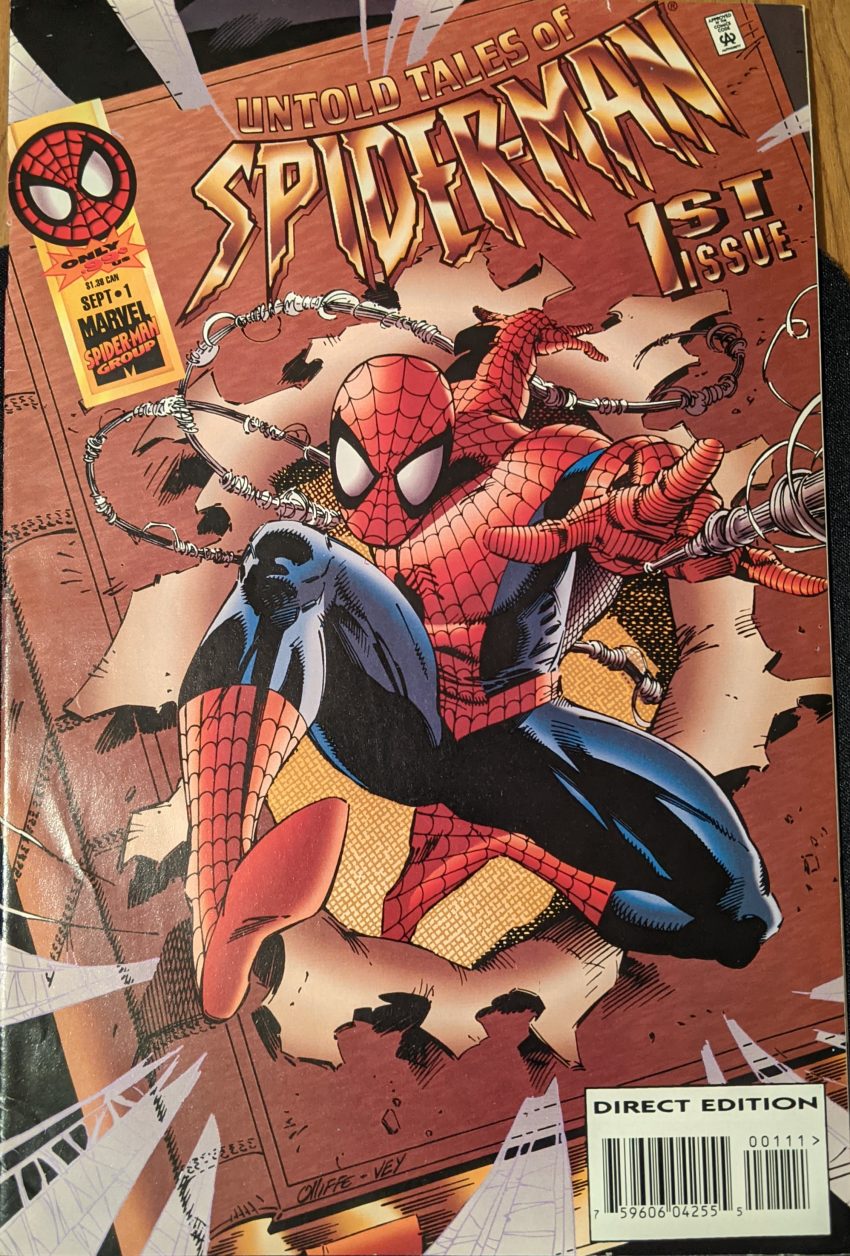One of the many weird ideas Marvel tried as the bottom fell out of the 90s comics market and they were sinking into bankruptcy was a line of 99 cent books. Making less money on the same amount of effort doesn’t seem like a great way to keep the business afloat, but what do I know? Their first one out of the gate was Untold Tales of Spider-Man. It was also the only one that made any sense. This book had a good name and a clear (If perhaps almost sacrilegious) mission: Creating new stories that could fit into continuity between early issues of ASM. The other titles in this line had no real reason to exist, and had nonsense names like “Fantastic Four Unplugged.” Unplugged? What? So, as has been mentioned elsewhere, I think, Kurt Busiek really shot to fame as the writer of Marvels. He’s joined on this series by penciler Pat Olliffe, inker Al Vey and colorist Steve Mattson. While we’re still doing the 90s Spider-Man, this book is a lot more visually in-line with the period it’s meant to fit into than the other retcon material we’ve seen so far this block. This issue opens in full combat mode:
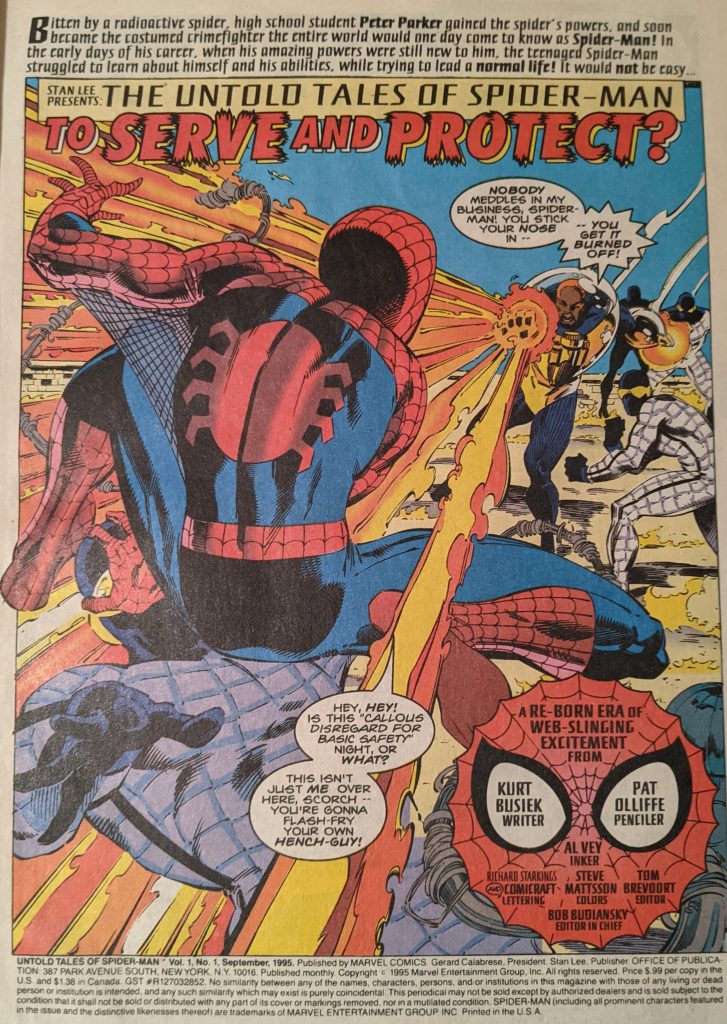
Kind of an odd way to open the first issue of a bran-dnew series, but I guess you gotta hook people. “The Scorcher” is a much more natural name for a villain in the period, and while his design isn’t too Ditko, his goons sure are, so things are starting strong there. Spidey swings back up, thinking he’s still new at this and sometimes worries he’ll miss with his web, but Scorcher blasts his webline and he goes falling again. He makes himself a web cushion to land on. The crowd gets riled up and wants to attack him, so he leaps away, and finds Scorcher and his goons have vanished. He retrieves his camera and wonders how he got into this mess.
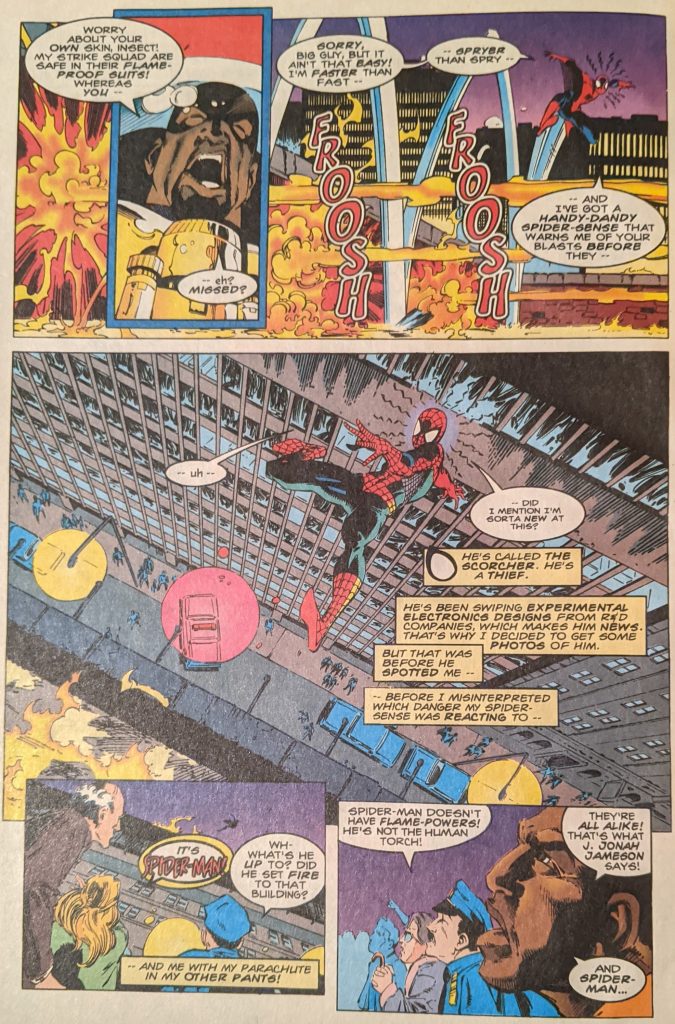
Olliffe isn’t really drawing in a “retro” style, but his work sits pretty comfortably next to Ditko’s compared to most of his peers. Peter goes on to recap his origin and what he’s been up to since, with a lil’ montage including the villains he’s fought so far, up to The Lizard, to let you know where we are in continuity. Speaking of which…
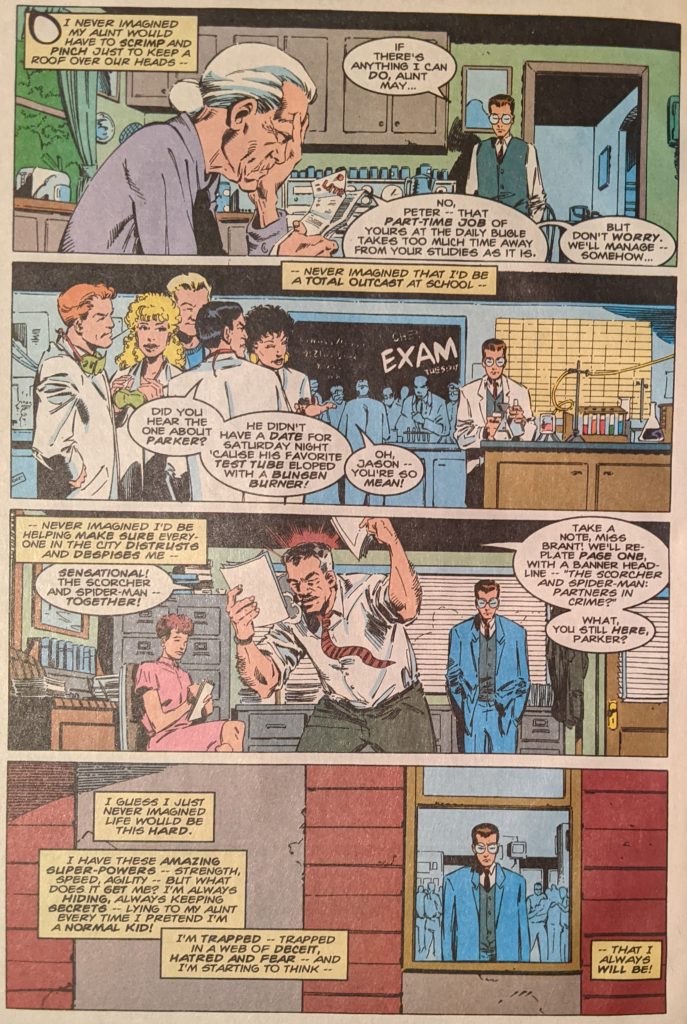
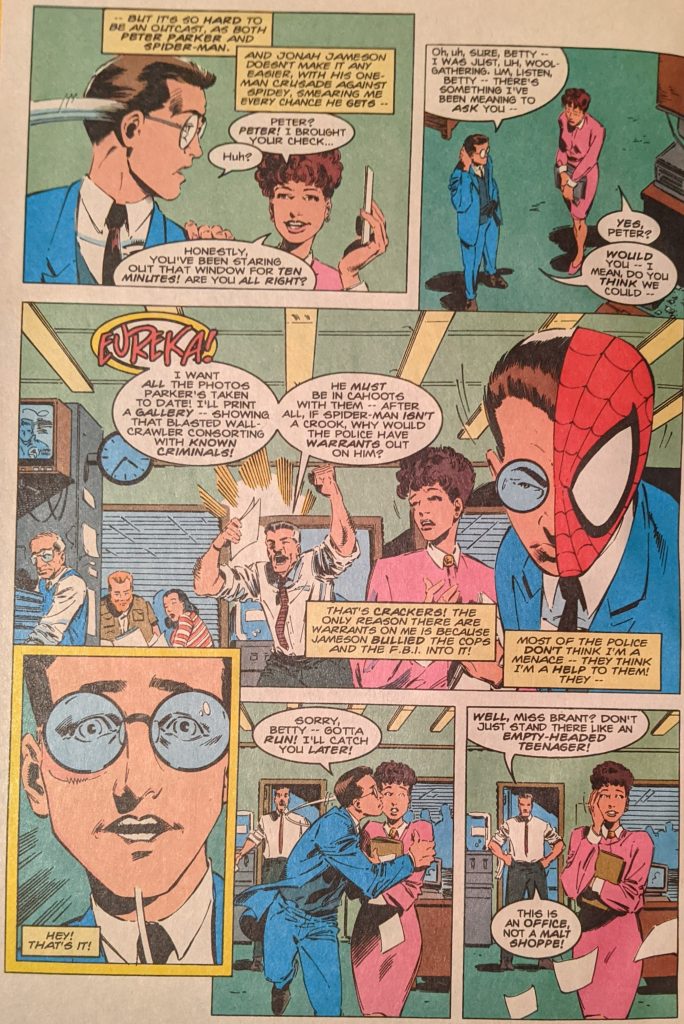
Busiek is really walking a tightrope here. He repeats Peter’s attempt to ask Betty out from ASM 6, has it once again foiled, but then tosses in that little reflexive kiss to ever-so-slightly advance a plotline that resolved 30 years prior. This whole thing is kind of a weird exercise, but he’s doing a good job adding new pieces to a puzzle that didn’t really need any. Spider-Man soon swings off, thinking he wanted to ask Betty on a date, but that will have to wait and he reaches a police precinct with an idea sure to solve all his problems: He happens to barge into the office of George Stacy to announce he wants to be a cop. He figures this would fix all his public image problems and help him learn how to actually fight crime.
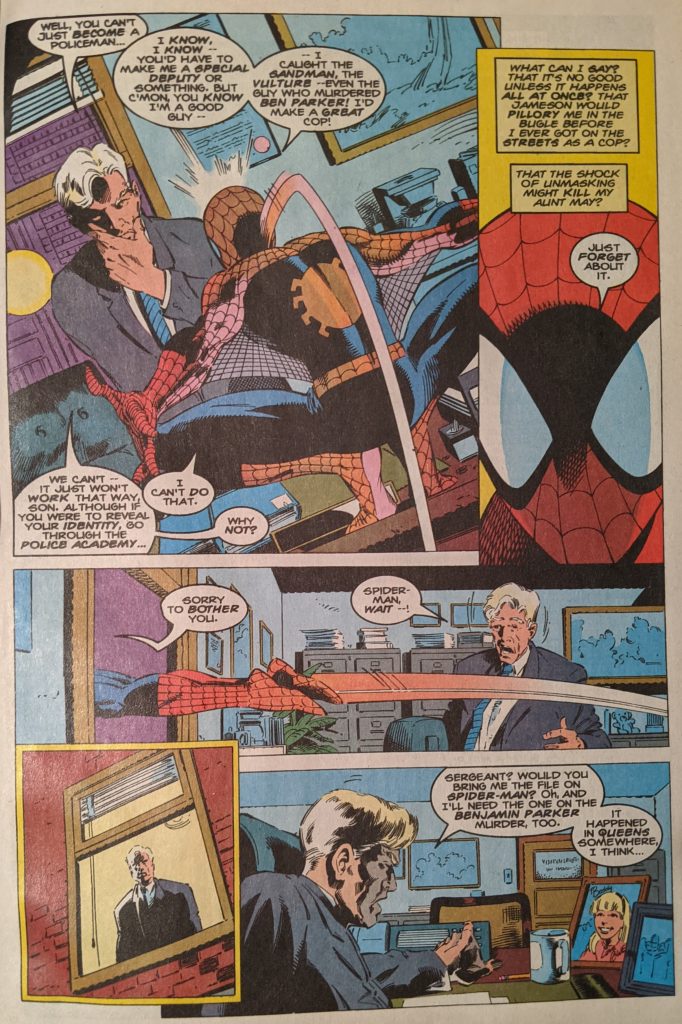
On the one hand, introducing Spider-Man to George early kinda feels like a cheat, but on the other hand, that slip about Ben Parker gives George a chance to get on the case. Since we know he figures it out from ASM 90, it’s fun to see the ball get rolling. Spidey swings off, frustrated that his scheme didn’t work, but ultimately concluding that Stacy guy seemed ok, and was just doing his job. He brings his latest photo money to Aunt May, who’s overjoyed, but then he hears on the radio that the cops have The Scorcher cornered in an old chemical warehouse, makes up and excuse about having left a school book at The Bugle, and is off again. Spider-Man finds the scene, and notes the cops have the building surrounded except for a spot on the north corner, which they wouldn’t notice from the ground, taking it as further proof they need him. He sneaks inside, finding Scorher’s goons having second thoughts about all this, and drops down into the middle of them. Scorchy is not happy.
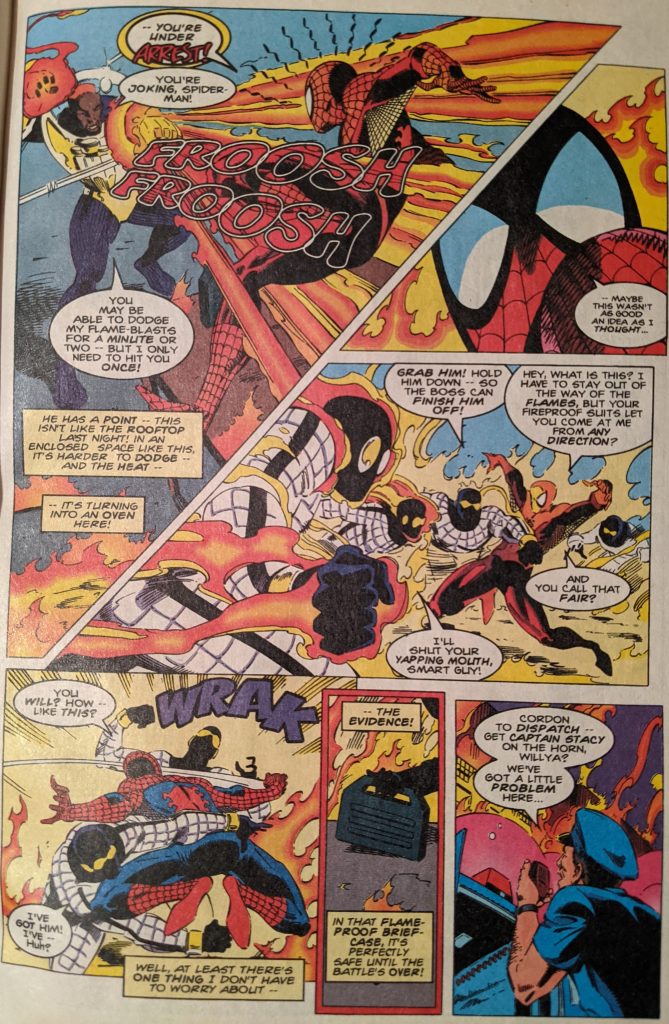
Spidey starts to panic because it’s hard to tell where anything is in the fire and smoke, but still manages to KO all the goons. As the smoke starts to get to him, it’s just him and Scorcher. He webs up his hands to try to knock the villain out, but he’s coughing and weakened, and it’s not going too well. Scorcher does some pretty good villain monologuing as Spider-Man notes the fire is spreading rapidly, and if the chemicals in the building go up, thousands could die. Scorchy moves in for the kill, asking if Spider-Man wants to be flame-broiled or slow roasted.
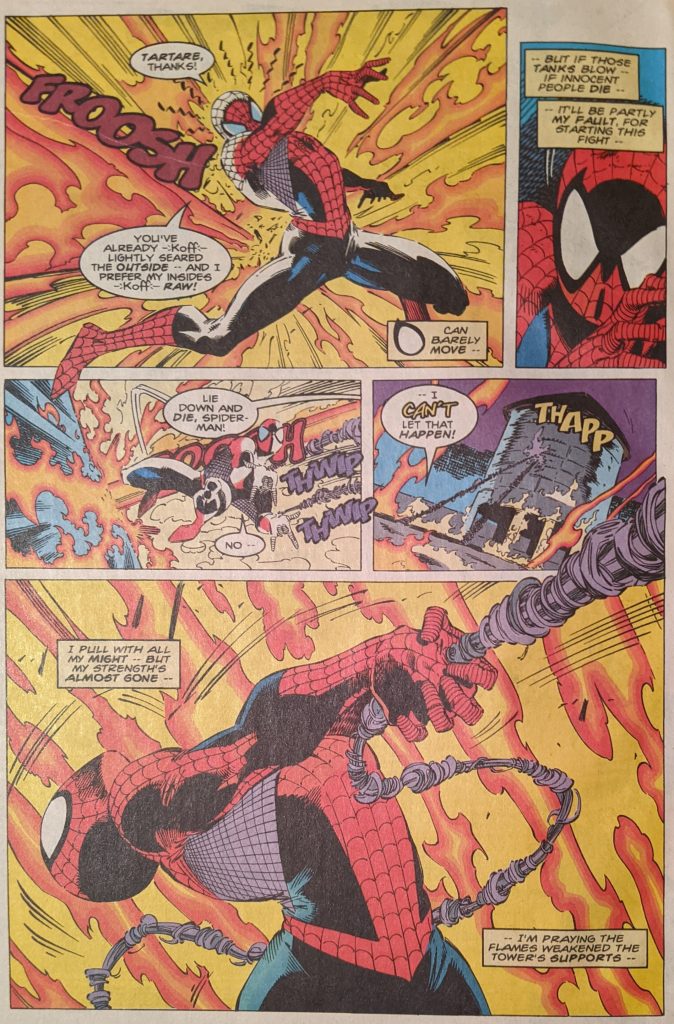
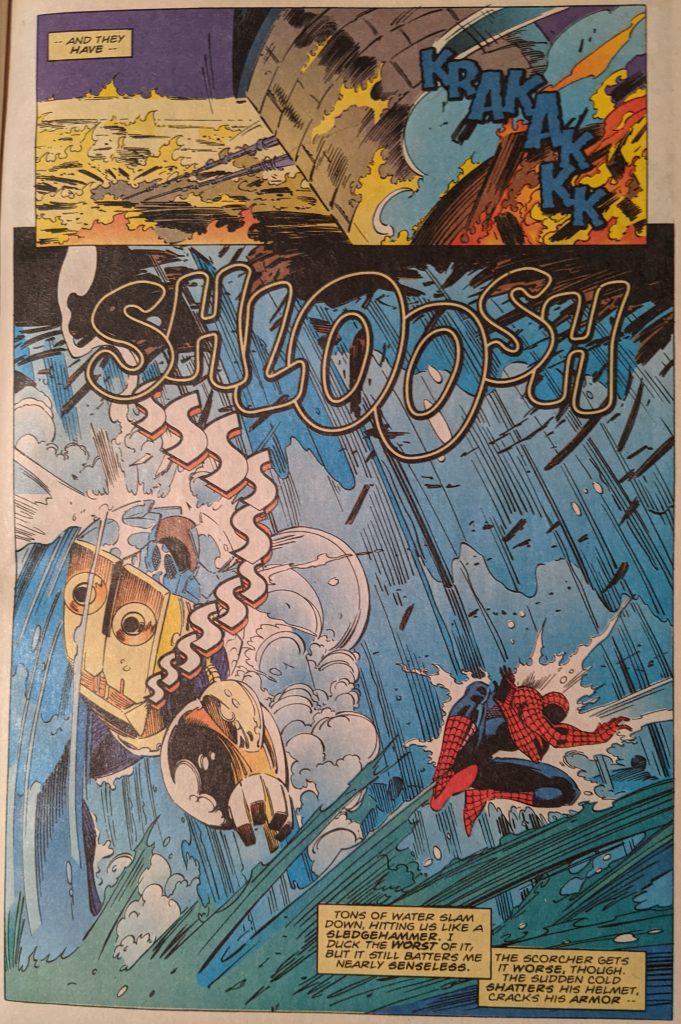
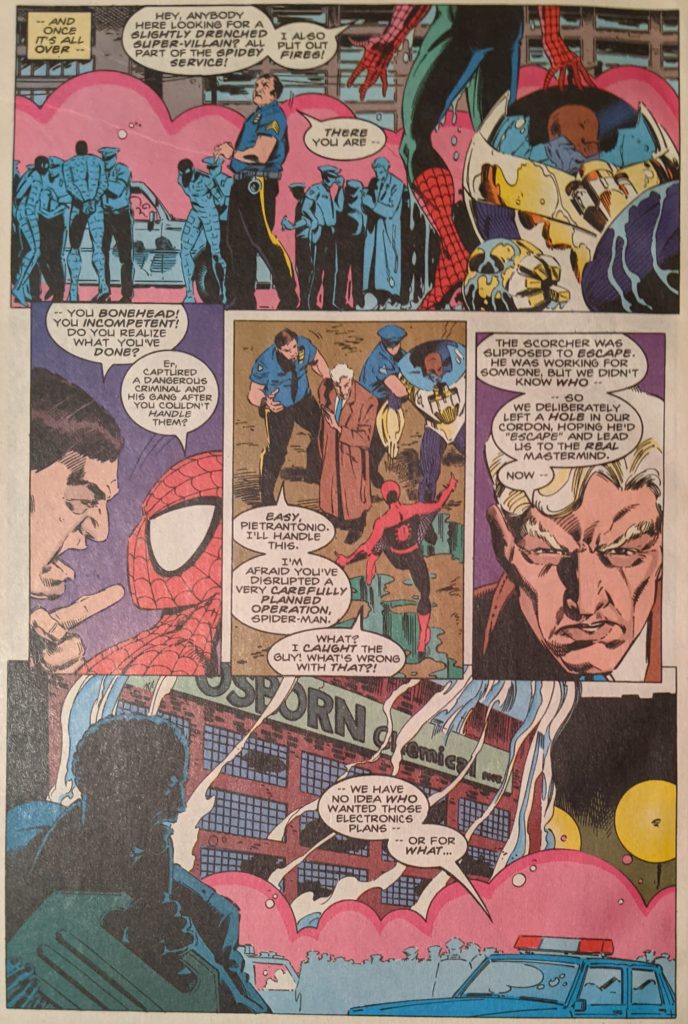
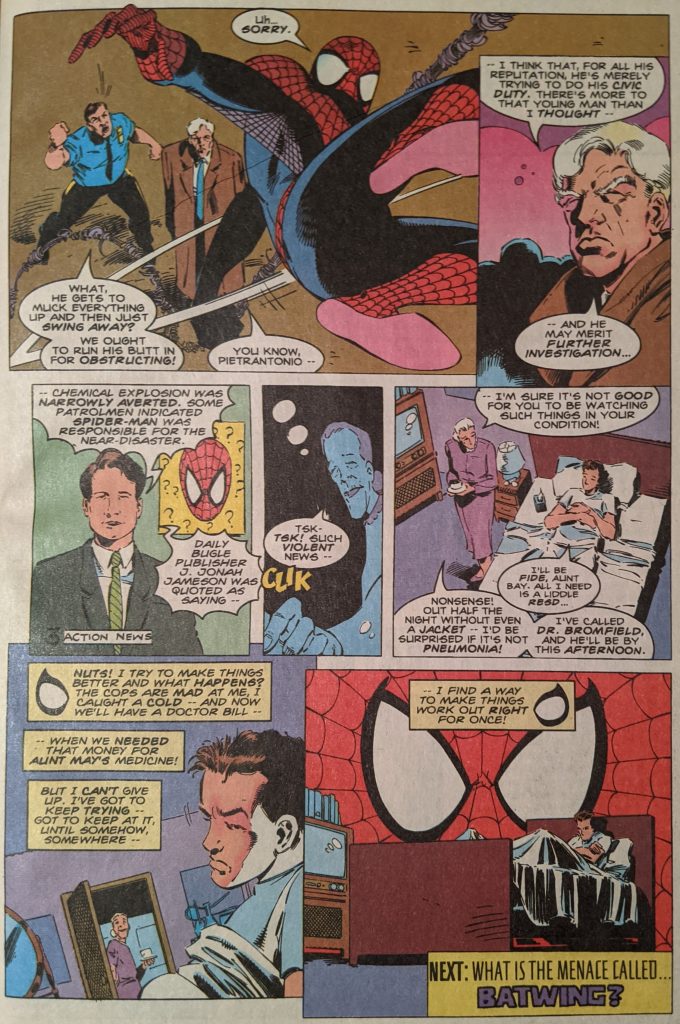
A frankly kind of awkward introduction for The Scorcher. He didn’t get much panel time for a brand-new character, especially compared to the villain intros happening in the ASMs of the period this seeks to expand. Otherwise, tho, a solid little Spidey tale. In the letter page, editor Glenn Greenberg lays out their hope that this book, released around the time the “Exiled” story in the Ben Reilly era, would give readers a chance to see his early days alongside his present. He also mentions their hope to introduce characters in this title and have them reappear in the present, or even introduce them in the present and then see them turn up here. Kind of messy logistically, but a fun idea. I don’t think it ended up happening too often, if memory serves. Untold Tales is a fun enough series for its 2 year run, but there’s a surprising, unintended dark side to it: While it was coming out, longtime Marvel editor Ralph Macchio (Not the Karate Kid) was trying to woo Steve Ditko back to Spider-Man. Ditko famously left Marvel on bad terms in the 60s, and though he came back from time to time, he refused to ever draw Spider-Man. But Ralph had an angle: There was an obvious time gap between Peter finishing high school and starting college that was unexplored. That gap occurred during the period when Ditko was plotting Spider-Man without even speaking to Stan Lee, these were 100% his stories, if not his dialogue over them. Ralph asked if he’d be interested in exploring what happened in this time. And Ditko was actually into it, interested in full creative control, the chance to present his singular vision of the character for the first time… Until he found out about Untold Tales. He felt like he would be competing with this title, and backed out. Regardless of the quality of this series or the talent of its staff, I doubt anyone involved thinks it was worth missing out on a 2nd coming of Steve Ditko’s Spider-Man. But… that’s life, sometimes. They were already well underway when this happened, there wasn’t really anything to be done about it. Who knows, Ditko had long been a crazy Objectivist Ayn Rand disciple by the late 90s, his new Spider-Man coulda been a disaster. But even so, it sure would’ve been interesting.

